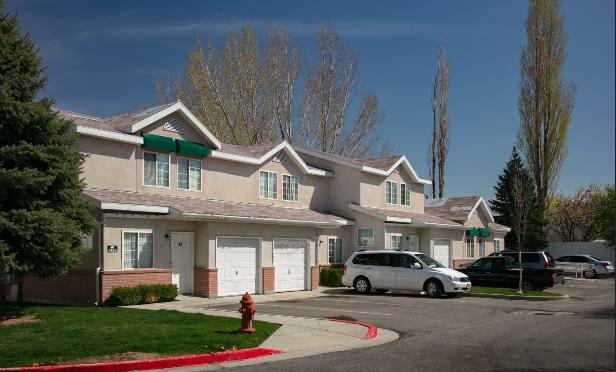 Avion, a KIMC property in West Jordon, Utah
Avion, a KIMC property in West Jordon, Utah
Social distancing may not end the moment that government restrictions are lifted. In fact, this pandemic could spark long-term cultural shifts in the way that we interact with one another. For commercial real estate, that may mean struggles for some asset classes or even sub asset classes, like co-working. Co-working is dense, by definition, and people might be weary of shared spaces following this health crisis.
"Co-working has finally seen something that is going to really hurt from a demand perspective because you are not allowed to aggregate the thing that people like about co-working," Jonathan Needell, president and chief investment officer at KIMC, tells GlobeSt.com. "That will cause some vacancy, and development will come off of its timeline for a lot of deals. Ultimately, you will see vacancy in office because of that."
Retail is another asset classes that may see a lasting impact. Retail was already struggling to compete with online shopping, but this health crisis may accelerate that trend and gain new online shoppers. "Retail is a similar story, particularly for the small shop owners, fitness centers and restaurants," says Needell. "Those will be tenants that landlords have to address in a pretty significant fashion. Unlike an apartment, the turn costs are much higher in retail. Potentially, the fact that we have had problematic retail for some time will accelerate the demise of retail that will happen in this coming recession."
It isn't all bad news. Needell says that multifamily and industrial are both well positioned to weather the storm. "I think the asset classes to perform well here are industrial and multifamily compared to everything else," he says. "Look at the other sectors and what they represent with regard to risk."
KIMC is already committed to affordable housing, which it expects to perform the best in the multifamily sector. Industrial has also proven to perform well through recessions. "Industrial has been a nice performer in recessions, and I think that it will continue to be," he says. "We are seeing lots of comments for space on the short-term side. This could accelerate online sales as a capture of market share and therefor the demand for industrial and logistics properties. That is a commentary partner to the retail change that will benefit industrial."
© Touchpoint Markets, All Rights Reserved. Request academic re-use from www.copyright.com. All other uses, submit a request to [email protected]. For more inforrmation visit Asset & Logo Licensing.






